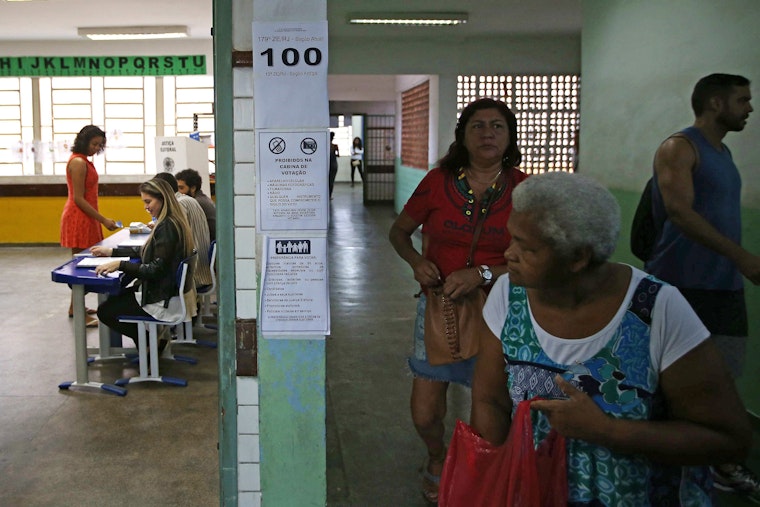Brazil’s Groundbreaking Attempt to Get Corporate Money Out of City Politics
By Ariel Kogan & Ana Carolina Evangelista

In recent years, protests in Brazil and throughout the world have sent a clear message: people want to participate more in political decisions that affect their lives. Despite this, many political institutions have failed to take advantage of the digital technologies that could help bring them closer to their constituents—especially younger generations.
To fill this gap, initiatives have been launched in Brazil and elsewhere that seek alternatives to the traditional ways society interacts with the state and, more specifically, to the way citizens talk to their representatives.
But simply creating apps that connect the public to their leaders isn’t enough; for technological and cultural change to be effective, it needs to be paired with political reform.
Changing the campaign finance model has long been considered a great way to reduce imbalances in elections and to eliminate barriers to entry for new political leaders. Reforms can also close off opportunities for corruption by requiring more responsible and transparent finances from candidates and their political parties.
So by the end of 2016, for the first time in Brazil, all private sector campaign financing for municipal elections came exclusively from individuals, rather than corporations.
This sea change in how campaigns are funded was made possible by a great effort of Brazilian civil society. To help facilitate individual campaign donations, two initiatives formed a partnership to create the Voto Legal platform, a pilot project. The first was the Movement to Combat Electoral Corruption, a network of more than 60 organizations across the country aimed at monitoring government budgets. The second was AppCivico, a social enterprise that works to develop technologies to increase public sector transparency and public participation.
Voto Legal is an open and free platform that allows people to make donations directly to the campaigns of municipal election candidates across the country. The tool also provides information on candidates’ backgrounds, their main policy proposals, and their campaign costs. Users can then make donations to those candidates in real time.
Since the 2016 elections were the first without corporate donations, we still need to review the data to understand if the financing changes had a positive effect on transparency and the cost of campaigns. Preliminary data reveals that the number of donations from individuals was limited. We think there are three main reasons for the low participation.
First, Brazilians are not accustomed to making financial contributions to political candidates, a fact that may have been exacerbated by a general lack of trust in the political class. Second, what little regulation the Supreme Electoral Tribunal has put in place for donations collected over the internet is unclear, which made both potential donors and candidates wary. Finally, there remains much work to be done on the mechanisms for interaction between the platform, the credit card companies, and the banks administering the campaign accounts.
Despite these wrinkles to be ironed out, it is our hope that Voto Legal helped candidates and voters change the campaign funding culture of Brazil. We have already held a meeting with the Supreme Electoral Tribunal to deliver our research and suggestions for improvement based on the experience of Voto Legal, so that the experiment can be expanded, adopted by other platforms throughout the country, and improved for the next elections, as well as other decisions that affect the lives of the Brazilian people.
Citizen participation shouldn’t be something that happens once every four years; it should be the goal whenever any public policy or proposal is under consideration.
AppCivico is a grantee of the Open Society Foundations. Thiago Rondon, the founder of AppCivico, contributed to this post.
Ariel Kogan is coordinator of Voto Legal and a consultant for AppCivico.
Ana Carolina Evangelista participated in planning Voto Legal.


